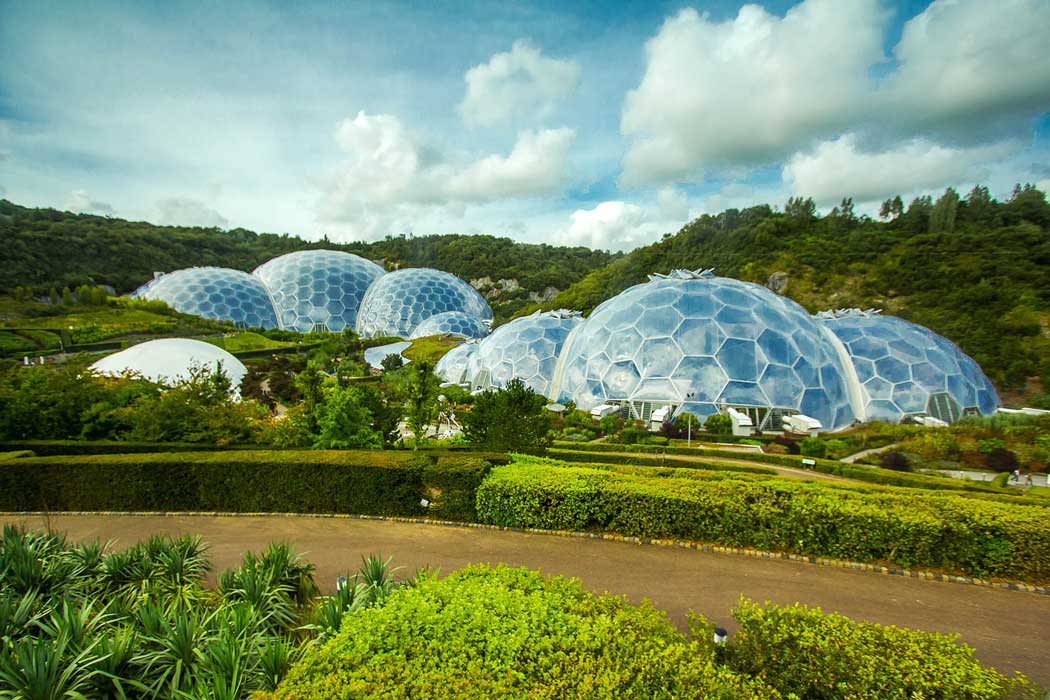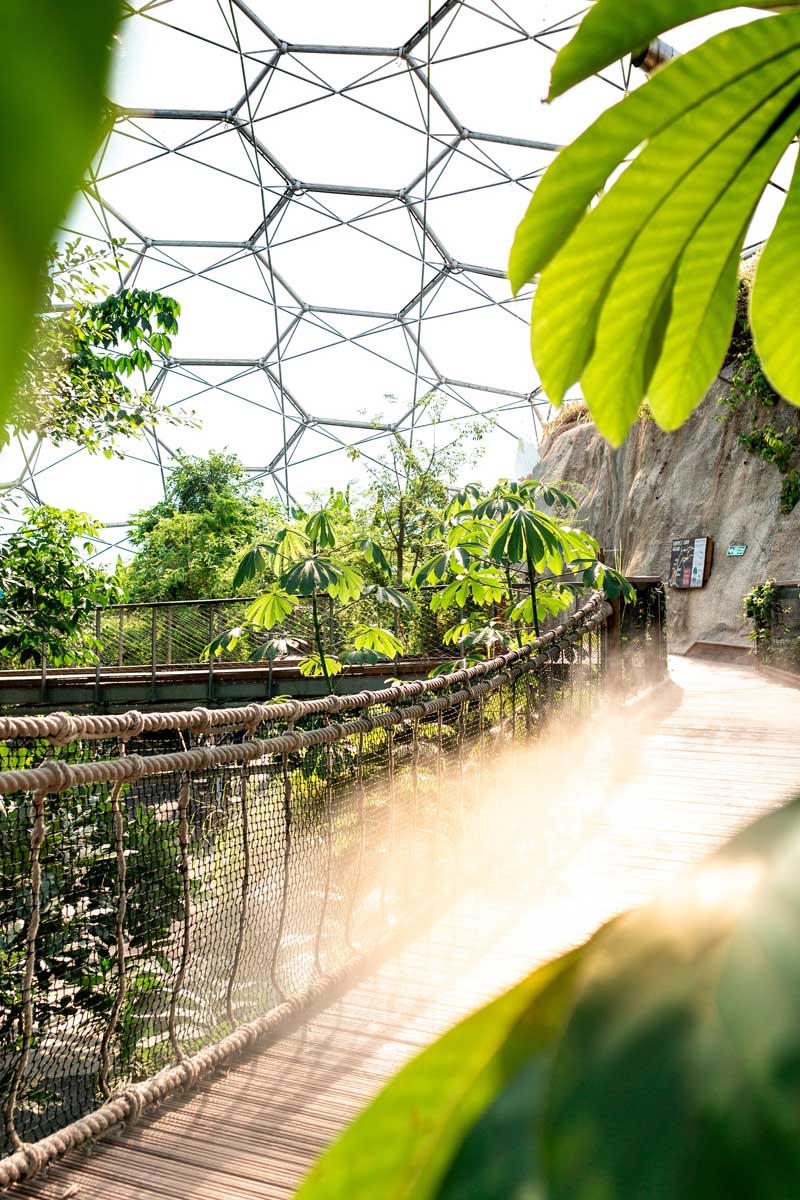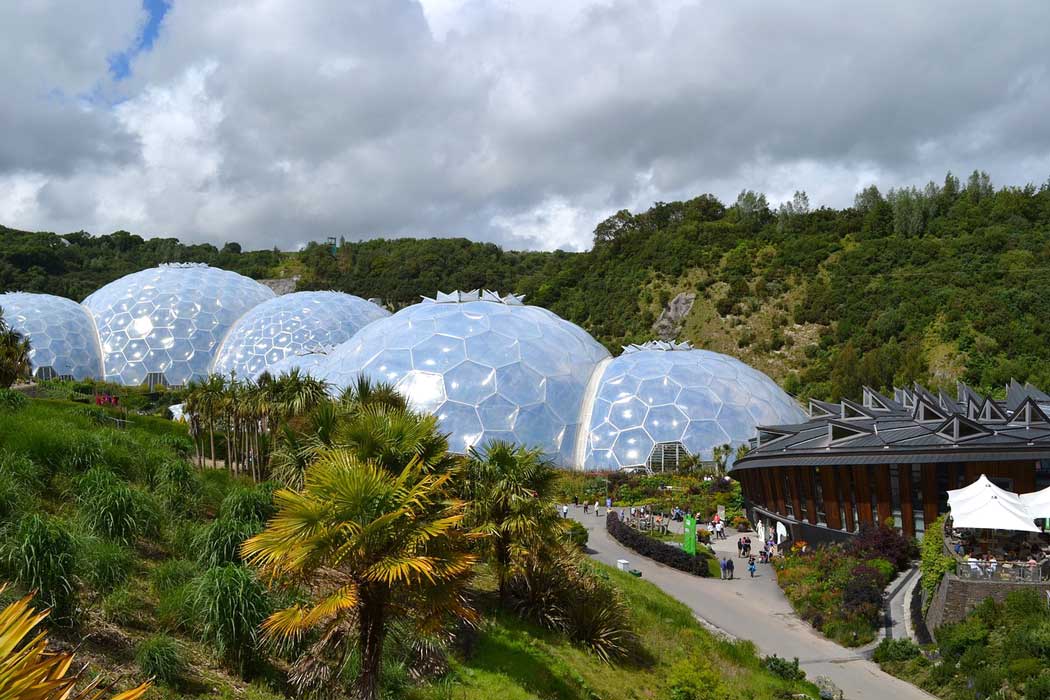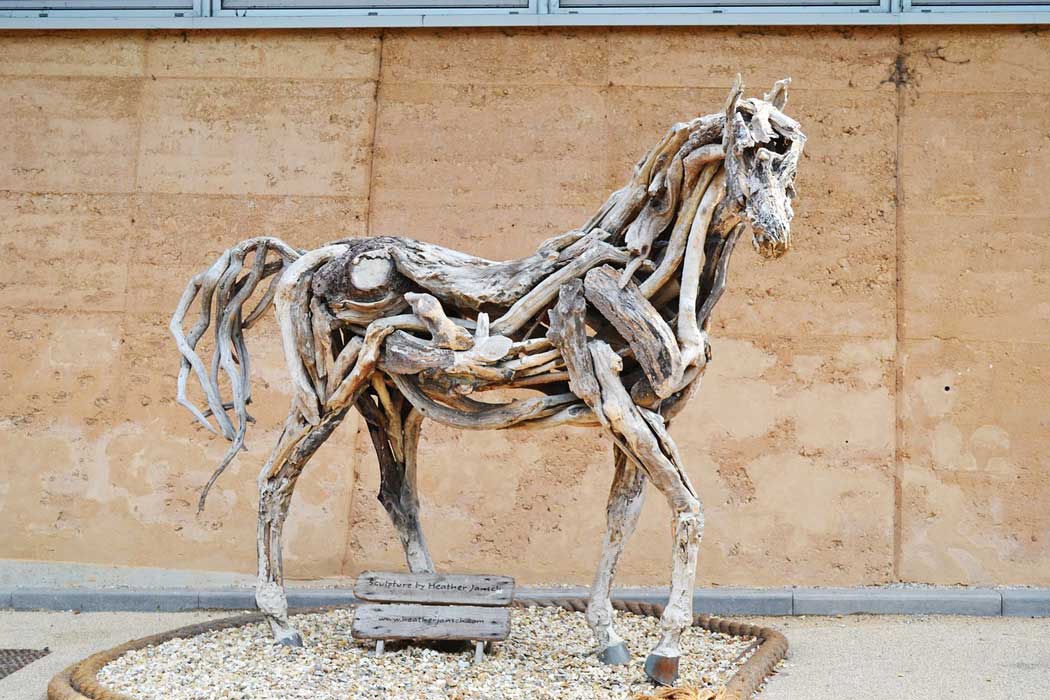Located in the Cornish countryside, around 6.5km (4 miles) northeast of St Austell, the Eden Project is one of the world’s leading ecological attractions, featuring biomes representing both Mediterranean and tropical ecosystems.
The site offers an immersive experience that blends education, conservation and adventure. This remarkable site, established on the grounds of a reclaimed china clay quarry, showcases the diversity of plant life from across the globe and serves as a beacon of sustainable living practices.
The project is the brainchild of Tim Smit and Jonathan Ball, who worked alongside a team of experts to transform the abandoned quarry into a thriving ecosystem bursting with life. Since its establishment, the Eden Project has welcomed millions of visitors, inspiring them to reconnect with nature and appreciate the delicate balance of ecosystems on our planet.
The Eden Project is far more than a botanic garden. It serves as a centre for environmental education, research, and sustainability advocacy. The project is dedicated to fostering a deeper understanding of the natural world and promoting positive action to combat the challenges faced by our planet. By showcasing the diversity of plants and their vital role in our ecosystem, the Eden Project aims to ignite a passion for conservation and inspire visitors to make a difference in their own lives.

What to see at the Eden Project
The main focus of the Eden Project are its Biomes – two colossal geodesic domes that house distinct climatic zones.
Visitors to the Rainforest Biome are immersed in the lush greenery and humid ambiance of a tropical rainforest. Here you can explore the winding paths and encounter a vast array of plant species, including exotic orchids, towering palms and vibrant bromeliads. The Rainforest Biome features waterfalls and it is also home to tropical birds.

The Mediterranean Biome, is a sun-soaked haven that replicates the climates of the Mediterranean Basin, South Africa and California. Visitors can wander through aromatic citrus groves, see blooming flowers and discover the resilience of plants that have adapted to survive in arid environments. The Mediterranean Biome offers a journey through fragrant gardens, olive groves, and vineyards, evoking a sense of tranquillity and serenity.
Beyond the biomes, the Eden Project boasts outdoor gardens that showcase the biodiversity of the region and highlight sustainable gardening practices. Stroll through the outdoor gardens, where you’ll encounter myriad native plant species, vibrant floral displays, and innovative landscape designs.
The Core is a building at the Eden Project in Cornwall that houses educational exhibits and visitor facilities. The building is shaped like a pinecone, and its roof is made of copper. It is home to the Eden Learning Centre, an educational facility used for school groups, as well as a number of visitor facilities including a cafe, restaurant and gift shop.

Nature’s Playground is a new outdoor adventure play area that opened in July 2023. It is one of the biggest in southwest England, covering nearly 500m² (5382 sq ft) around the Core Building and up to the Bluff Bridge. The playground was created with nature and adventure at its heart, and features a variety of activities for children of all ages, including the 9m (29½ ft)-tall Tree of Life tower, slides and ladders, swings, a wood wide web, a willow coppice soakaway, a water course fed by recycled groundwater and a china clay pit.
The site is also home to an excellent display of outdoor sculpture, with many of the art installations addressing environmental themes.

Activities and temporary exhibitions at the Eden Project
In addition to the biomes and the outdoor gardens, the Eden Project also hosts a programme of temporary exhibits and interactive workshops that allow you to learn more about the environment. Current and planned exhibitions and events include:
Christmas at the Eden Project
Christmas at the Eden Project (until 4 January 2026) offers seasonal activities and installations across the site. Visitors can see a new light display, meet Father Christmas in an interactive family event and use the ice rink. The programme presents a range of festive experiences within the Eden Project’s biomes and outdoor spaces, designed to appeal to families and visitors of different ages.
John Dyer: Spirit of the Harvest
Spirit of the Harvest (until 9 February 2026) presents paintings by Cornish artist John Dyer, created during residencies across several countries. The works focus on key global crops including rice, potatoes and bananas, highlighting their cultural and agricultural significance. On display in the Link Building, the exhibition reflects on food, landscape and community across varied environments. Artworks are available for purchase
The Eden Project also hosts a programme of outdoor cinema and concerts.
Visiting the Eden Project
The Eden Project is 6.5km (4 miles) northeast of St Austell. It is only a 10-minute drive from St Austell and it is also accessible by bus with bus routes 28 and 31 running between St Austell and the Eden Project; however, the bus takes a roundabout route taking around 35 minutes to get to the site with buses running only once every 1½ hours or so.
The Eden Project covers 30ha (74 acres) so there is a lot to see and a visit will involve a lot of walking. However, it is fully wheelchair accessible (and there are also wheelchairs available for loan).
Nature’s Playground is open to all children aged 16 and under, and is included in the price of admission to the Eden Project. However, free pre-booking is required for children.
There is also a wide choice of places to eat and drink including the Med Terrace and Biome Kitchen restaurants plus the Little Lunch Box and Eden Coffee House cafes. However, many people bring their own picnic to save money.
The Eden Project is a large attraction with a lot to see and most people allow a half-day for their visit.
Book your tickets to the Eden Project
Save time by pre-booking your entry tickets to the Eden Project in Bodelva, near St Austell, Cornwall.
We may earn a small commission if you buy your tickets after clicking this link.


There are no comments yet.